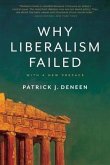In "The Wealth of Nations," Adam Smith presents a seminal exploration of economic principles that laid the foundation for classical economics. Written in a clear, engaging prose typical of the Enlightenment era, Smith intertwines philosophical insights with empirical observations, emphasizing the importance of free markets, competition, and the division of labor. His meticulous analysis of the labor theory of value, alongside discussions on price mechanisms and the role of self-interest, reveals an intricate understanding of how economies function and flourish. This work not only critiques mercantilism but also offers a vision for economic systems that prioritize individual freedoms and market dynamics, positioning it as a critical text in the canon of economic literature. Adam Smith, a Scottish moral philosopher and economist, was deeply influenced by the socio-political landscape of the 18th century. His background in Enlightenment thought and personal experiences of economic strife in Scotland informed his revolutionary views on trade and production. His intellectual journey, culminating in this comprehensive treatise, showcases his commitment to addressing the moral implications of economic systems and advocating for the welfare of society. This book is essential for anyone interested in understanding the roots of modern economics and the philosophical debates surrounding market dynamics. Smith's insights remain relevant today, making "The Wealth of Nations" not only a historical artifact but a timeless guide for economists, policymakers, and curious readers alike.
Bitte wählen Sie Ihr Anliegen aus.
Rechnungen
Retourenschein anfordern
Bestellstatus
Storno








